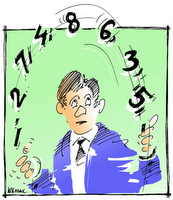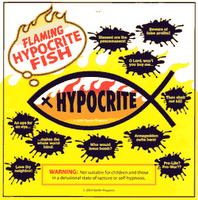
Perhaps the best known series of sociological data is the General Social Survey (GSS), which contains data on religion and marital outcomes. Below I present the percentage of ever-married respondents who had ever divorced or were currently separated by religious affiliation and frequency of attendance.
Divorce rates by religious affiliation & attendance. General Social Survey, 2000, 2002, 2004 (N= 5,963)
58% Non-active Black Protestants
54% Non-active Evangelicals
51% No religious beliefs (e.g., atheists, agnostics)
48% Non-active other religions
47% Active Black Protestants
42% Non-active Mainline Protestants
41% All Christians
39% Jewish
38% Active other religions
34% Active Evangelicals
32% Active Mainline Protestants
23% Active Catholics
Data from 1985 – 1999 show nearly identically religion-divorce patterns with an across-the-board increase in divorce rates. For these data.
Technical notes
The coding of the religious variable was taken from Steensland et al. (2000). Click here for full citation and description of coding.
“Active” was defined as attending church services about once a week or more often.
The GSS has various weighting variables for household composition and race oversampling. For simplicity sake, I have analyzed unweighted data, but others use weighted data.
Credits
I thank Christine Zozula for very-able research assistance. These analyses were informed by the work and advice of W. Bradford Wilcox, a sociologist at the University of Virginia who is an expert in this area. Thank you!
Disclaimers
These data are from a working draft. I think that they’ve been done correctly, but I could be wrong. Any mistakes, and they do happen on a somewhat regular basis, are mine, and I will correct them as they come to my attention. I welcome replications of these and all of my analyses. Let me know what you find.
Tomorrow: Divorce rates by religious affiliation II

























